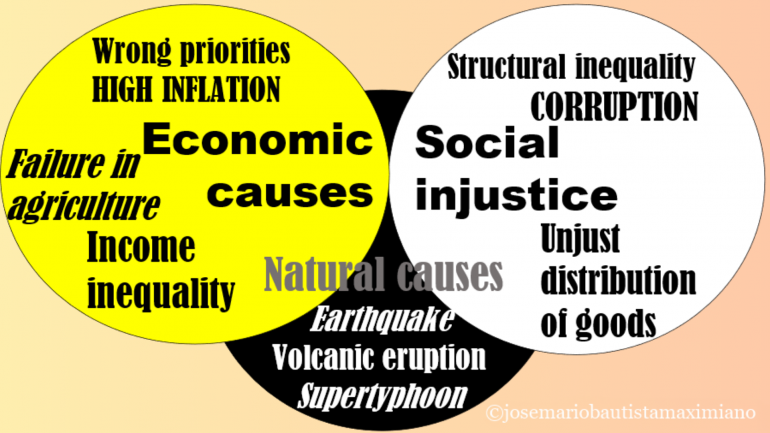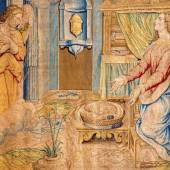Asian Church of and for the Poor: What Does It Mean? (Part 1)

I was rereading the Final Document of the Continental Stage in Asia, submitted by the Federation of Asian Conferences (FABC) to Rome prior to the Second Session of the 2021-2024 Synod on Synodality.
It says, among other things, “Asia holds the dubious distinction of having the most billionaires in the world on one hand, while on the other, it has 320 million people that are extremely poor, living below the poverty line” (no. 3).
The Synod of Bishops’ 2024 Final Document itself urges the local churches to promote “both a consciousness of service and a particular style of service towards all, especially the poorest" (no. 73).
All the popes of recent times—with Pope Francis in his special way—did tell us to pay attention to those on the existential peripheries: the lost, the last, and the least.
I also remember Pope St. John Paul II’s Sollicitudo Rei Socialis (The Social Concern) leading us to a meaningful appreciation of why and how the Catholic Church should always be mindful of the conditions of the forgotten members of society.
It was a privilege to have been invited and attended the Second Plenary Council (PCP II) in 1991 at San Carlos Seminary in Makati. [Now, my being a senior citizen is revealed]. Then CBCP President Archbishop Leonardo Legaspi, OP (1935-2014) was also the PCP II President, whom Bishop Teodoro Bacani Jr. once described as “a giant among bishops, a leader with vision and integrity.” The open-ended question Archbishop Legaspi himself asked is still fresh in my old grey matter:
“We see children begging daily on our main streets. Their sunken eyes match their swollen stomachs… After almost five centuries of Christianization, why are the majority of our brothers and sisters still living in conditions of poverty?”
For this, the Second Plenary Council resolved that the Church in the Philippines become truly a Church of the Poor. Accordingly, this unforgettable council produced a most meaningful Message to the People of God and it might be well to solemnly invoke it here:
“A CHURCH THAT LIVES IN EVANGELICAL POVERTY, which combines detachment from material possessions with a profound trust in the Lord as the only source of salvation;
“A Church that defends and vindicates the rights of the poor even when doing so spells for herself alienation or persecution by the rich and powerful;
“A Church where the poor, equal to all others in Christian dignity, are not only evangelized but BECOME EVANGELIZERS THEMSELVES;
“A Church where no one is so poor as to have nothing to give, and no one is so rich as to have nothing to receive.”
“The idea of this Church of the Poor remains the first Jerusalem community, where the faithful were “UNITED, HEART AND SOUL” (Acts 4:32) and where no one was in want (Acts 4:34) because everyone shared out of love.”
The brilliance of the morning sun that day lit the chapel of San Carlos Seminary in Makati City with jubilant luminosity. In 1991, the Filipino Church made a firm resolve to embrace “voluntary poverty that sanctifies” and, with it, our expression of full trust in God’s Divine Providence. On that day, we stood up for our common aspiration to become more people-oriented than money-oriented.
As Pope Francis has nicely put it: “How important it is to free the sacred from its ties with money” (Homily, November 7, 2021).
In 1991, everyone thought and prayed that the PCP II vision of a “Church of the Poor” would not remain a yearning, a wish upon a star, or barely a hope. Everyone thought and prayed it would remain a firm decision, a committed resolve, and a mighty undertaking of both the Catholic hierarchy and the laity in communio.
In the same fashion, the FABC and the recently concluded Synod of Bishops made a wish and did resolve that the Church becomes a Church of and for the poor and those in the existential peripheries. Will this synodal dream be realized?
[To be continued]
*José Mario Bautista Maximiano is the lead convenor of the Love Our Pope Movement (LOPM) and author of the book Church Reforms 3: The Synodal Legacy of Pope Francis (Claretian, 2025). Church Reforms 1 and Church Reforms 2 are available in Lazada and Shopee. Email: jomaximiano@gmail.com
Radio Veritas Asia (RVA), a media platform of the Catholic Church, aims to share Christ. RVA started in 1969 as a continental Catholic radio station to serve Asian countries in their respective local language, thus earning the tag “the Voice of Asian Christianity.” Responding to the emerging context, RVA embraced media platforms to connect with the global Asian audience via its 21 language websites and various social media platforms.












